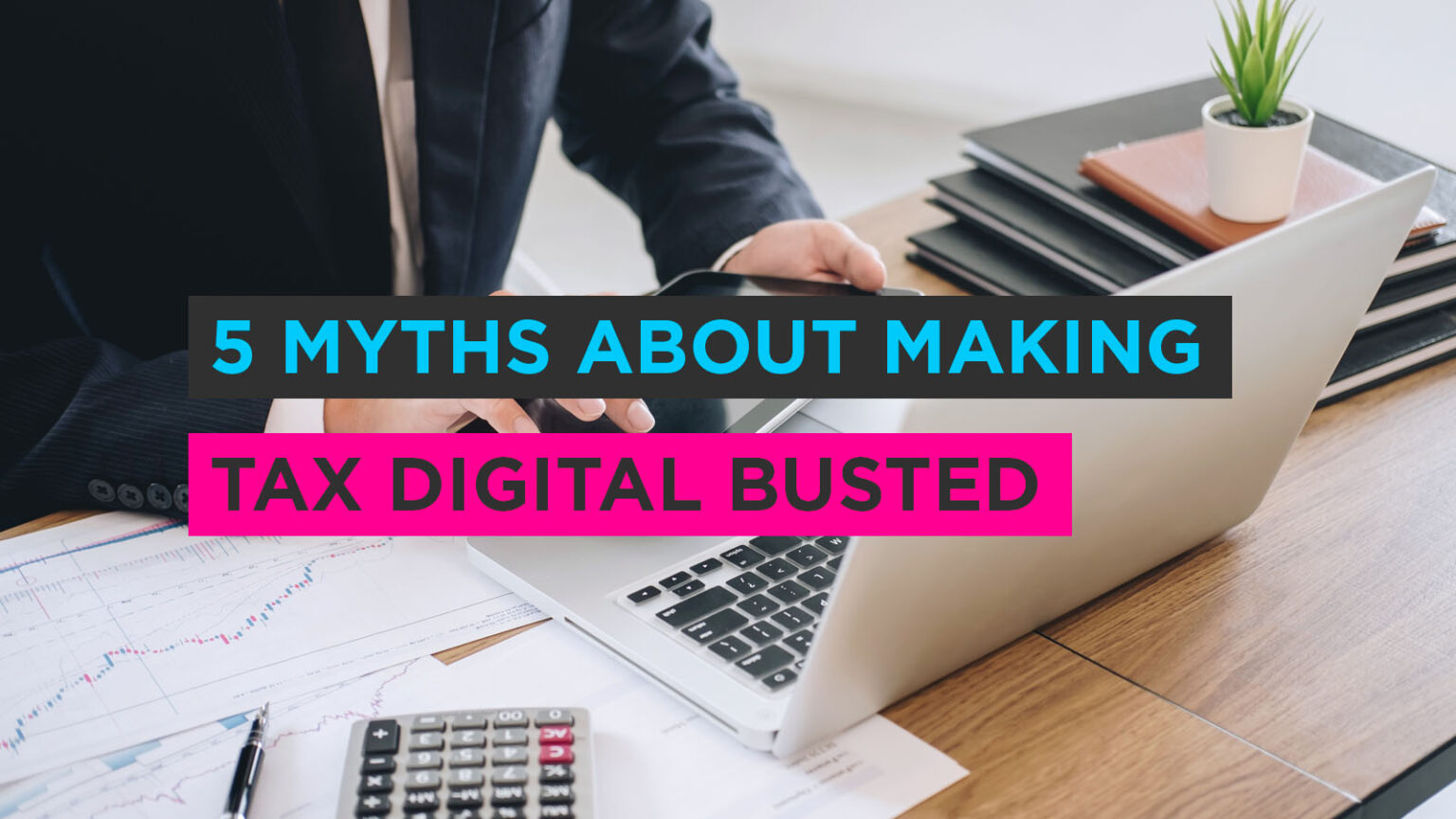
The UK government’s plans to make tax digital have been shrouded in controversy since they were first announced. There has been a lot of misinformation floating around, and many people are unsure about what the changes will mean for them. In this blog post, we will dispel some of the myths about making tax digital and give you the facts.
The Making Tax Digital (MTD) scheme rolled out in 2019 for VAT-registered businesses with over £85,000 in taxable income. In April 2024, this threshold will be reduced to £10,000.
There are many benefits to MTD, but many business owners are apprehensive about the change, fearing it will mean more stress, fear and penalties. Let’s take a look at some of the incorrect assumptions about MTD and talk about what the truth is instead…
This is a common misconception about Making Tax Digital. The scheme does require quarterly updates but the amount of data you reveal to HMRC remains the same. With your VAT return, for example, you will still fill in the same nine fields of information but you will simply do it digitally.
Quarterly updates will actually encourage business owners to stay on top of their finances and give them a better insight into their cash flow.
MTD is not about creating a heftier tax bill; it’s about reducing errors and fraud. When businesses are able to submit accurate tax returns more quickly and easily, it minimises the chances of mistakes being made. This means that you are likely to pay the right amount of tax – no more, no less.
In addition, Making Tax Digital will help to reduce the administrative burden on business owners, so everyone can focus on more important things.
This is another common misconception about Making Tax Digital. The reality is that tax returns will take the same amount of time to complete – or quite possibly less. The main difference is that you will be doing them digitally instead of on paper. You won’t have to spend hours poring over your accounts – the software does all of the hard work for you.
This also means that there is less opportunity for human error, meaning your tax return will be more accurate.
MTD involves quarterly updates but this doesn’t mean that you won’t have to complete tax returns anymore.
The quarterly updates are in addition to your annual tax return – they are not a replacement for it. The SA100 form will be replaced with a final declaration, which HMRC will then review.
Currently, businesses with a taxable income of under £85,000 per year are not required to participate in MTD, but this will change as the 2024-2025 tax year commences. This may seem far off now, but it’s best to take steps to prepare for the change now.
The truth is that all businesses need to be prepared for MTD, even if they don’t have to start complying with it until later on.
The sooner you start getting ready, the smoother the transition will be. This means it’s a good idea to begin digitising your accounting process and using MTD-compliant software so that you’re ahead of the game.
There are a lot of misconceptions about Making Tax Digital, but the truth is that the scheme has many benefits. It reduces the chances of mistakes and fraud, and it makes tax returns easier to complete.
All businesses need to be prepared for MTD, even if they don’t have to start complying for another few years. The sooner you start getting ready, the smoother the transition will be.